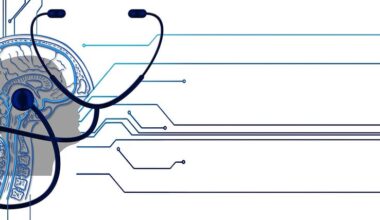Strength Training After Pregnancy: Where to Start
Postpartum strength training is essential for recovery after childbirth. It’s an important avenue for returning to fitness and rebuilding strength. New mothers may feel overwhelmed, but the journey begins with understanding the body’s needs and limitations. It’s key to approach postpartum fitness with care, patience, and a clear plan. Starting with basics, consult your healthcare provider to ensure the body is ready for exercise. Setting realistic goals can prevent injury and bolster confidence. Working on core stability is crucial, as the abdominal muscles may have weakened during pregnancy. Incorporating pelvic floor exercises supports recovery, helping with bladder control and core strength. Gradual progression in workout intensity is fundamental. Building a solid foundation reduces the risk of injury during more advanced routines. Balance and flexibility exercises can also benefit postpartum mothers. Finding a supportive community or workout group can enhance motivation and adherence to the fitness regimen. Along the way, focus on nourishment and self-care. Healthy meals, hydration, and plenty of rest are vital for both mother and baby. A balanced approach leads to sustainable strength training results.
After establishing a foundation in postpartum strength training, it is important to focus on specific exercises. Begin with body-weight workouts to increase comfort and control over movements. Exercises like squats, lunges, and modified push-ups strengthen muscles without excessive strain. Resistance bands are also excellent for providing gentle resistance, allowing for gradual muscle recruitment. Start with lighter bands, then progressively increase tension as strength improves. Incorporating exercises targeting the major muscle groups promotes balanced strength development. Upper body workouts can include shoulder presses and rows, while lower body work may consist of deadlifts and glute bridges. Maintain proper form during exercises to avoid injury; if unsure, consider working with a fitness professional who specializes in postpartum training. Consistency is vital, aiming for at least two to three sessions per week. It is noteworthy to listen to your body; rest days are necessary for recovery. Alongside physical workouts, addressing mental wellbeing is crucial. Creating a positive mindset aids in motivation, making workouts more enjoyable. Consider using fitness tracking apps to monitor progress and celebrate achievements, no matter how small.
Importance of Core Strength
Core strength plays a significant role in postpartum recovery, serving as the foundation for overall body stability and coordination. During pregnancy, the growing uterus puts pressure on the abdominal muscles, leading to potential diastasis recti, a separation of the abdominal muscles. To address this, targeted core exercises can be invaluable. Start with activities that promote gentle engagement of the core, such as pelvic tilts or modified planks. Gradually work towards more challenging movements as strength develops. Yoga and pilates are excellent choices for integrating core strength with flexibility and relaxation. Emphasizing breath control can enhance core engagement, making each movement more effective. Practicing these exercises consistently helps restore functional core strength, facilitating daily activities and preventing back pain. Incorporating exercises into a daily routine simplifies the journey to rebuilding strength. Remember to be mindful of physical limitations; consult a healthcare provider if any concerns arise. Overcoming postpartum challenges can require time and patience. By nurturing core strength, new mothers lay the groundwork for a robust fitness future. It builds confidence and enables participation in various activities with greater ease.
As postpartum fitness journeys continue, incorporating full-body workouts becomes more feasible. A well-rounded workout regime addresses various muscle groups, promoting complete body strength while preventing muscle imbalances. Consider adding exercises such as kettlebell swings or medicine ball routines, which provide weights to enhance resistance during workouts. Strength training should prioritize safe movement; however, it can foster progress over time. Interval training can be beneficial, integrating both strength and cardio elements. This approach increases heart rate and boosts calorie expenditure, making workouts more efficient. Finding enjoyable activities keeps motivation high and reduces burnout during this busy phase of life. Participating in fitness classes designed for postpartum women can provide guidance and foster connection with others in similar circumstances. Additionally, incorporating more functional movements prepares mothers for everyday tasks, like lifting and carrying their infants. Stay mindful of body mechanics during these activities, focusing on posture and alignment. Waking up muscles steadily through strength training empowers women, helping them regain their strength on their terms. Building endurance and strength can positively impact overall energy levels, contributing to an improved sense of well-being.
Nutrition and Hydration
A crucial aspect of postpartum strength training revolves around nutrition and hydration. Proper fuel supports recovery and energy levels, essential for engaging in a workout regime. Balanced meals incorporating lean proteins, healthy fats, and whole grains provide the necessary nutrients. Eating a colorful variety of fruits and vegetables ensures a rich intake of vitamins and minerals vital for recovery and vitality. Adequate hydration plays a critical role in performance; aim for at least eight glasses of water daily, adjusting according to activity levels. Understanding postpartum caloric needs is also essential, particularly for breastfeeding mothers who may need additional calories. Preparing nutritious meals in advance can simplify the dietary component, easing stress during busy days. Snack options like nuts, yogurt, or smoothies can provide quick energy boosts. Keeping track of eating habits can help maintain awareness, ensuring nutritional needs are met. There are many resources, including apps and community programs, to support new mothers on their dietary journey. Prioritizing nutrition not only aids in physical recovery but also enhances mood and mental clarity.
Engaging in postpartum fitness can bring numerous benefits beyond physical strength. Establishing a dedicated routine can enhance mental health by reducing stress and improving overall mood. Regular physical activity stimulates the release of endorphins, often referred to as the ‘feel-good hormones.’ This uplifted sense of well-being is crucial for new mothers adjusting to their roles. Balancing fitness with motherhood promotes a sense of accomplishment and self-worth. It allows women to reclaim their identity outside of being a mother. Additionally, physical activity can improve sleep quality, a common challenge for postpartum women. The fatigue associated with caring for a newborn can be overwhelming, but regular exercise can help regulate sleep patterns over time. Creating a supportive environment, such as finding workout friends or joining community classes, fosters motivation and accountability. Sharing experiences with fellow mothers can also create lasting friendships. The journey is just as important as the destination; celebrating small victories along the way is essential for maintaining long-term commitment. Personal growth during this transformative phase can lead to profound strength, resilience, and empowerment.
Finding Support and Resources
Support systems are invaluable during postpartum fitness journeys, offering encouragement and guidance along the way. Connecting with a community of mothers can provide motivation and camaraderie during fitness endeavors. Online groups or local mommy-and-me classes encourage shared experiences; these interactions enhance the overall enjoyment of fitness. Seeking guidance from certified trainers specializing in postpartum exercise is essential. They possess expert knowledge regarding safe modifications tailored to individual needs. Various online resources, including workout plans and nutrition tips, are widely accessible. Many websites and mobile apps offer programs specifically designed for postpartum women. Utilizing educational materials from reputable sources ensures a safe and effective workout experience. Workshops, webinars, and local support groups also present opportunities for learning and connection. Finding a supportive partner or friend to exercise with can make the journey more enjoyable. Engaging in fitness together encourages accountability and companionship, making workouts feel less intimidating. Ultimately, the journey of postpartum fitness requires patience, resilience, and support. Consistently pursuing fitness goals leads to sustainable change, fostering a healthier lifestyle for both mothers and their families.
The journey of postpartum fitness emphasizes the importance of listening to one’s body. Recovery takes time, and it is essential to recognize individual limitations. Early postpartum challenges may include fatigue and emotional fluctuations; acknowledging these feelings is the first step in managing them. Self-compassion and understanding create a nurturing environment for healing. Celebrate small milestones along the way, whether it’s completing a workout or feeling more energetic. Encouragement from friends and family can enhance motivation. Prioritize personal goals and find balance among responsibilities, which often become more demanding as a new parent. Assessing the workout routine regularly ensures ongoing progress while accommodating changes in energy levels and circumstances. This adaptability helps maintain engagement in physical activity, making it sustainable. Remember that every woman’s experience is unique, and there is no set timeline for recovery. Celebrate the journey, embrace every challenge, and cherish the shared experiences of motherhood. The strength gained through this experience transcends physical fitness, cultivating resilience that can positively influence all aspects of life. Ultimately, by prioritizing health, new mothers can foster a better quality of life for themselves and their families.


